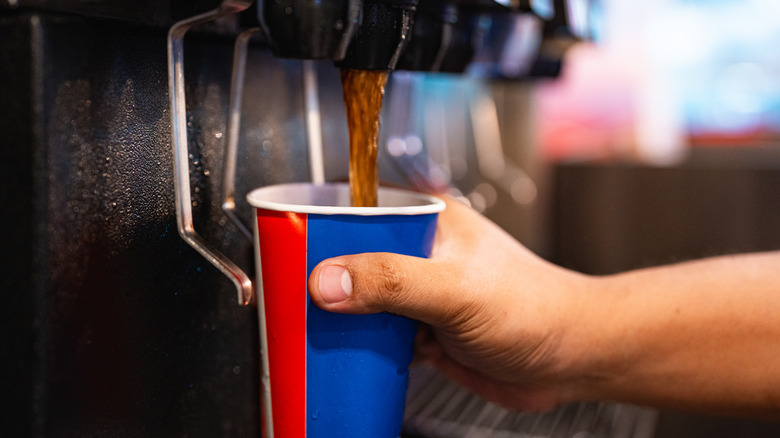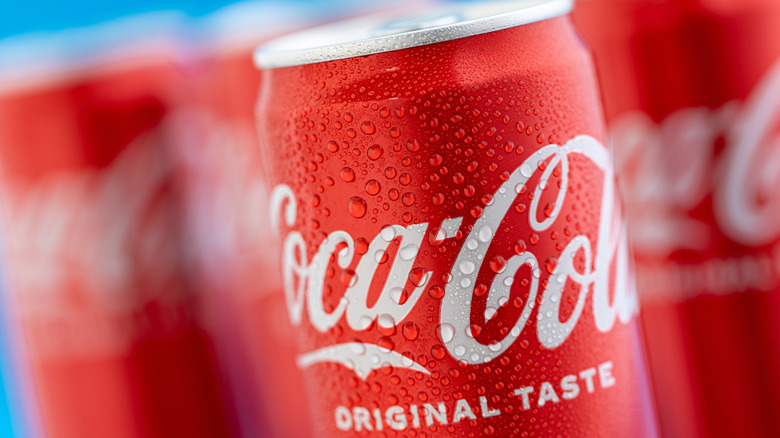Soda Or Pop? Here's Why The Term Varies Across The US
If you want to experience a pure example of the vagaries of the English language, go out to a restaurant with a bunch of friends from different parts of America and listen to how each of them orders a carbonated beverage. Your buddy from Boston will ask for a soda; that recent transplant from Cleveland will request a pop. These regional preferences in nomenclature have roots in how soft drinks were first introduced to each region.
People raised in the Northeast U.S., and along the West Coast, typically call it soda. This is most likely because the first soda fountains in America were installed in Baltimore and New York City — by 1836, the Big Apple had hundreds of fountains. The popularity of "soda" likely spread throughout the region, being transported to other major cities like Los Angeles as the population expanded west. By 1875, soda fountains could be found across the country.
The reason why "pop" is a more common term for "soda" in the Midwest is a little tougher to uncover, although many people attribute it to the sound made by soda bottles when opened. The Detroit-based company Faygo, makers of the Faygo Soda (favorite drink of the Insane Clown Posse), is often noted as the first brand to officially call their soda "pop."
Here's why Southerners ask for Coke by it's name
There is a third contender in the "soda vs pop" name debate. In a restaurant, your Texan friend will ask for a Coke no matter what type of "soda" they're drinking. The South has historically been a hotbed of soft drink innovation, from Cheerwine's origins in North Carolina to the town of Waco, TX, bringing us two iconic beverages: Dr Pepper and its 23 flavors and the equally mysterious Big Red. But, Coca-Cola towers above them all. The soda was invented in Atlanta in 1886 and quickly took off across the region, creating a brand loyalty so strong that Southerners simply started calling all soft drinks "Coke."
The Southern preference is an instance of something known as genericide. While the term sounds ominous, it means that a brand has become so ubiquitous that its name can be used as a shorthand for all products of the same type. If you've ever said you "Googled" something on the web or asked for a "Kleenex" to blow your nose, you've used examples of genericized brands.

